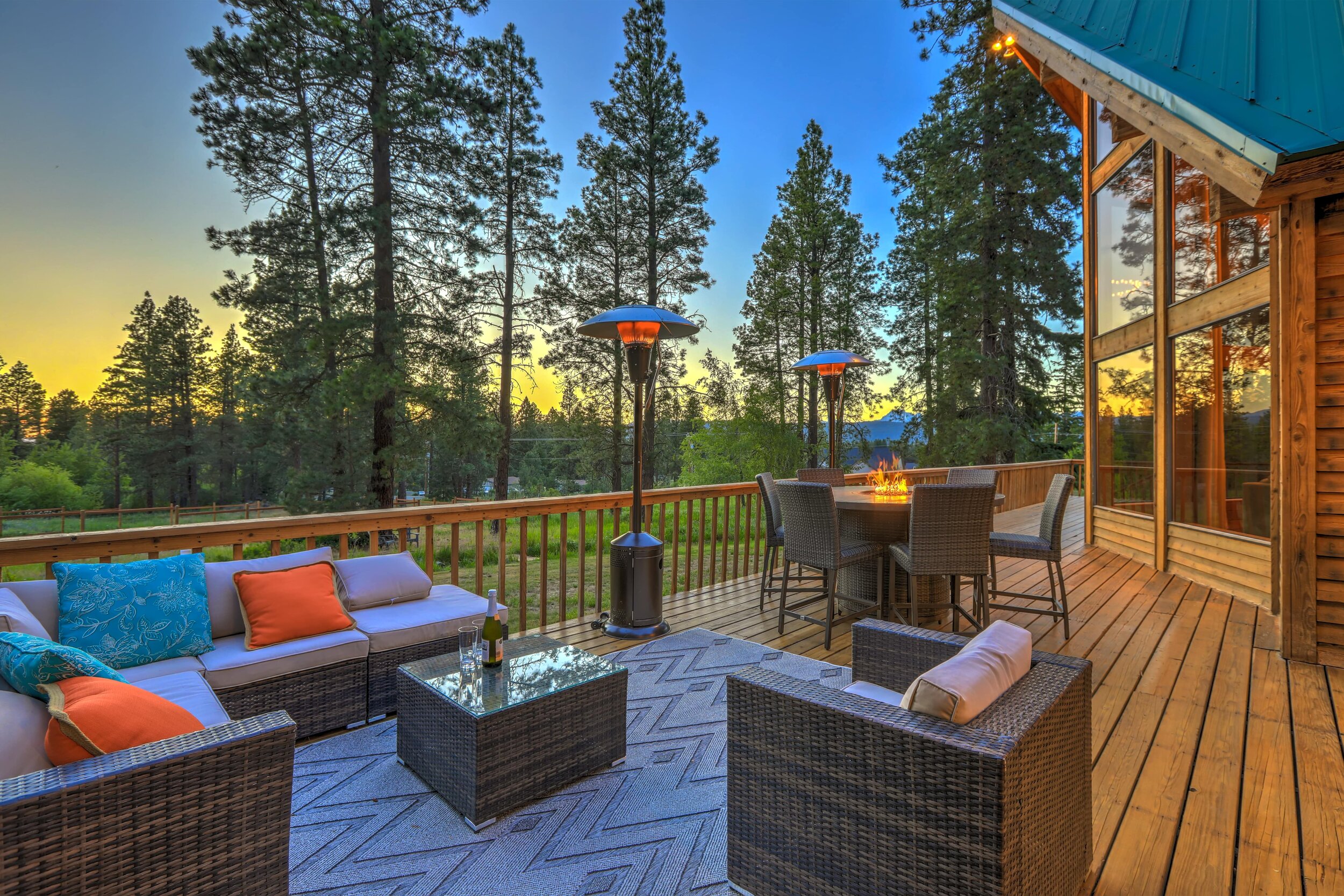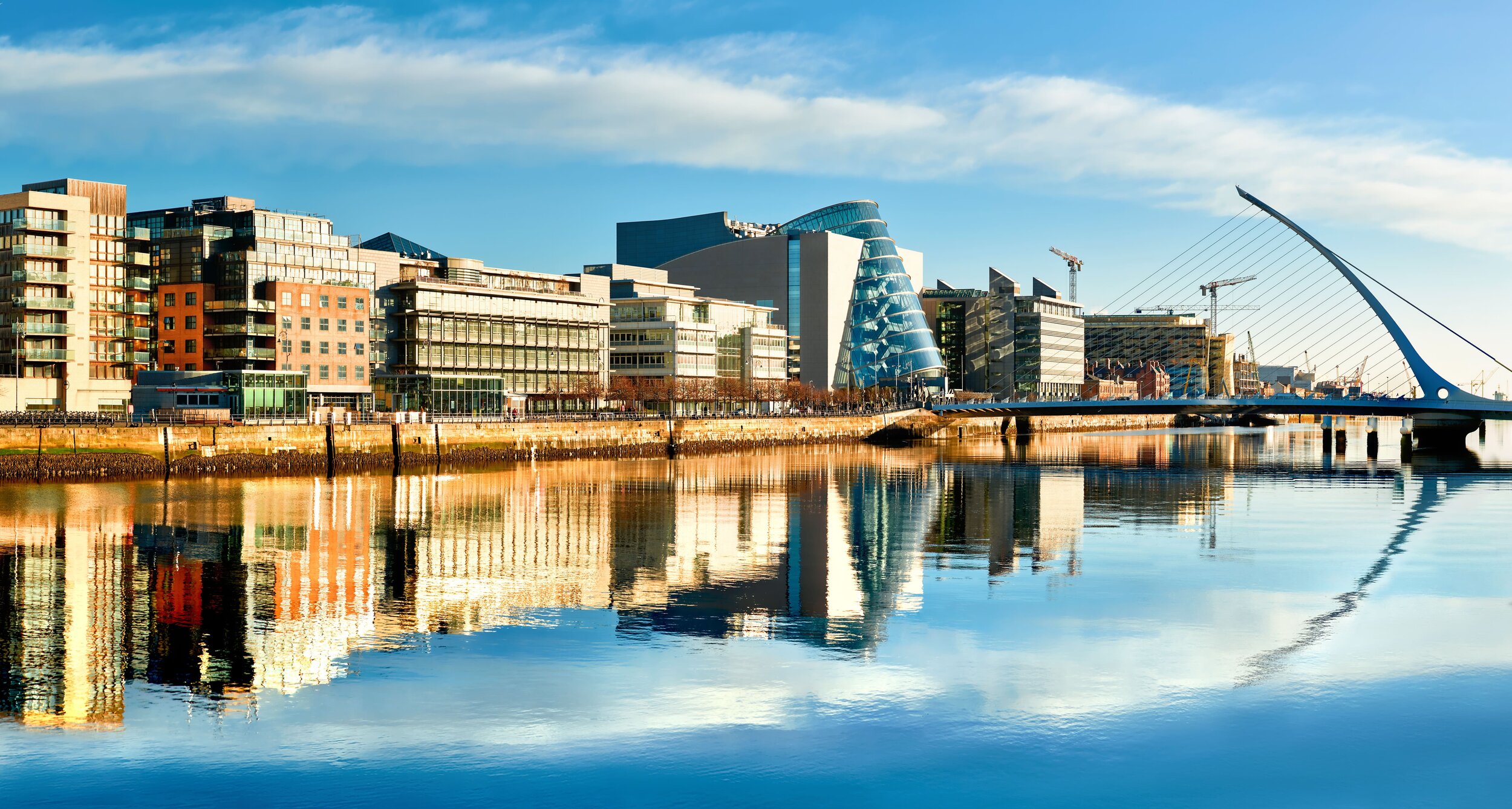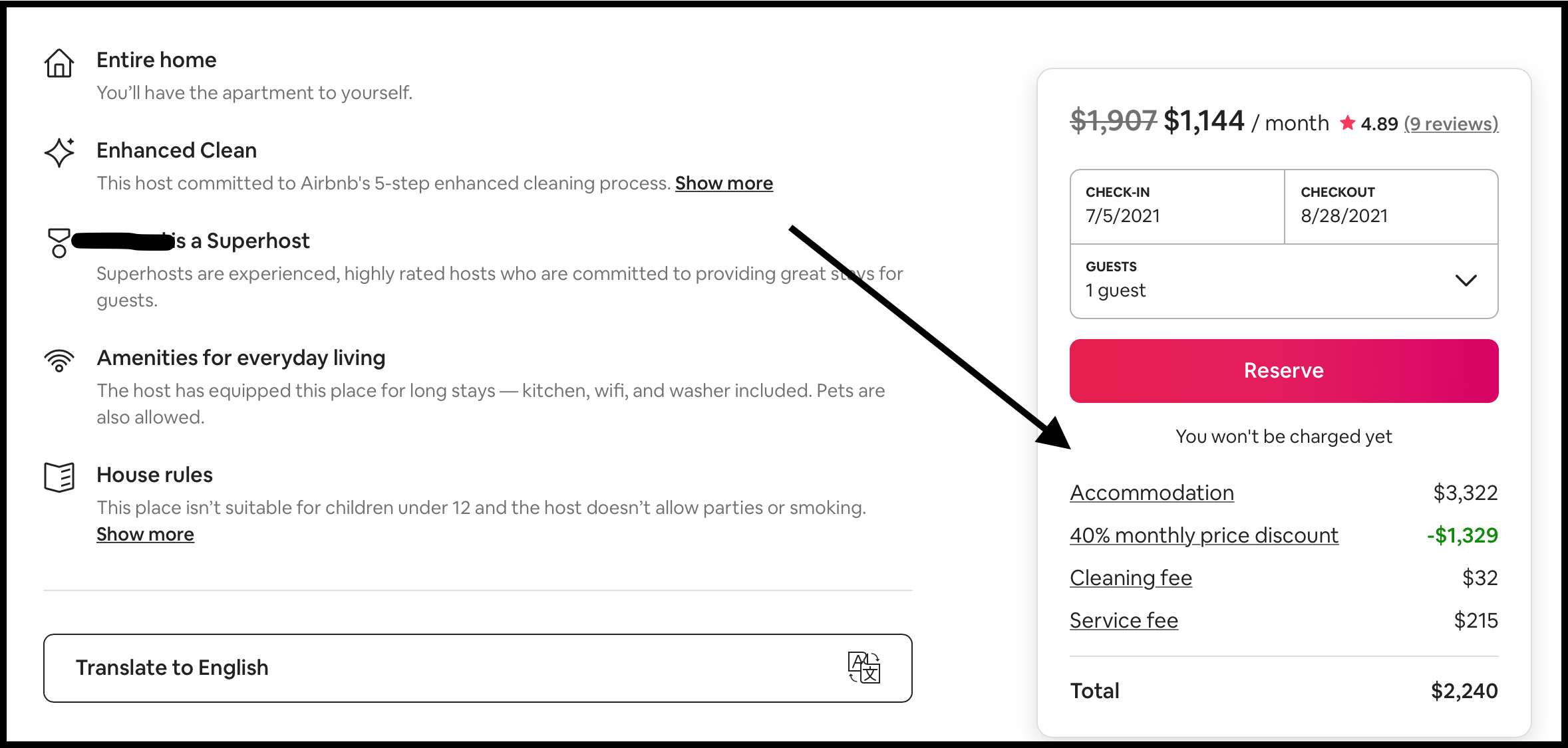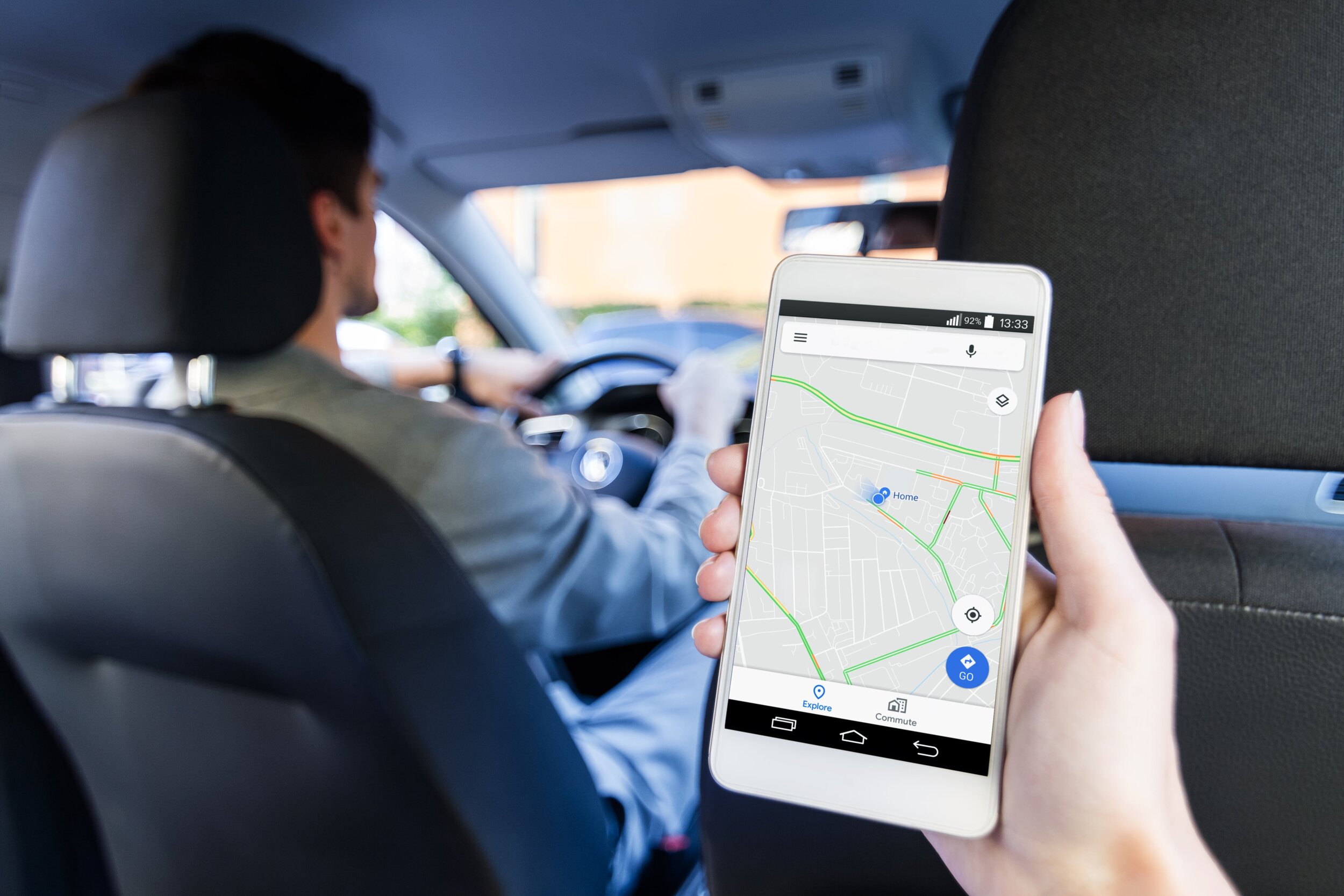What Is Airbnb? [How It Works, Makes Money, FAQ]
What Is Airbnb?
Airbnb shook up the travel industry.
Through innovation, community and strong network effect, the company grew into a major player in travel accommodation booking (surpassing other vacation rental sites like Vrbo.com, and now rivaling major, “mainstream” booking sites like Agoda.com).
In this guide, we’ll explore how Airbnb works.
We’ll cover what Airbnb is, the company’s origins and history, how Airbnb's business model works (and how it makes money), plus Airbnb’s effect on the travel industry, hotels and local markets. Lastly, I’ll answer 15 frequently asked questions about Airbnb.
*Agoda.com sells quality, discounted hotel rooms (UP TO $50 OFF!). To see today’s deals on hotels, click here.
Table of Contents
What Is Airbnb?
Airbnb.com is a marketplace where hosts list their homes for rent, then guests can discover and book those places. Airbnb listings are listed by individuals or business. Airbnb doesn’t own the rental properties.
Airbnb is a unique company in many ways. It made the “home sharing” concept mainstream and changed how people feel about staying in a stranger’s home when traveling. Prior to Airbnb, most people would only consider this option if they were at least already acquainted with the person hosting them.
Airbnb is, undoubtedly, one of the most successful travel technology companies since the 2000s. Among other factors, its success is credited to ideal timing, solid execution, re-investing profits, multiple rounds of outside investment, and swift global expansion.
*Many experienced travelers believe that Vrbo.com is better than Airbnb for apartment and house rentals. To see today’s deals on Vrbo, click here.
Airbnb’s Company History
In 2008, Brian Chesky (current CEO), Nathan Blecharczyk (currently an Airbnb executive) and Joe Gebbia founded AirBedandBreakfast.com. Through the site, the founders listed and rented air mattresses (in their home) to travelers visiting San Francisco. Air mattresses were the only listing at the time, but initial customers welcomed this option, as hotel rooms in San Francisco are expensive and can book out quickly.
The company joined Y Combinator (a famous startup incubator) in 2009 and then received much-needed funding. After rebranding to Airbnb.com, the young company expanded its “home sharing” concept from air mattresses to various lodging types, from beds to entire homes. Airbnb is still known for its range of lodging options, even 15+ years later.
From 2010 to 2020, Airbnb raised multiple rounds of investment while focusing on global expansion. In 2011, its first international office opened in London. Since 2013, Dublin, Ireland has been Airbnb’s European HQ. Airbnb’s main headquarters and office is in San Francisco, California (888 Brannan Street).
After Europe, Airbnb expanded into Asia, Australia and beyond. Airbnb was one of the first U.S.-based travel companies to enter Cuba (2015), where it’s still popular. Cuba’s “cases particulares” are one of Airbnb’s most popular unique stay options. Unique stays are “alternative” lodging - often distinct to a destination. For more on unique stays (with examples), click here.
Airbnb also focused on adding multiple features (like Experiences and Adventures) and improving its user experience (user verification, listing and property quality, website/app safety, etc.). In fact, despite rapid growth and many outside investment rounds, Airbnb was not profitable until 2016, due to reinvestments.
Airbnb acquired a few companies during the 2010s, though none were significant players in travel at the time of acquisition (except HotelTonight, bought for over $400 million in 2019). Two other acquisitions were Hamburg-based, Accoleo, and London-based, CrashPadder - both small, but direct, competitors to Airbnb in their respective local markets. Airbnb went public in December 2020 at an IPO of $146/share.
*Agoda.com sells quality, discounted hotel rooms (UP TO $50 OFF!). To see today’s deals on hotels, click here.
How Airbnb Works
*For a step-by-step guide showing you exactly how to book an Airbnb, click here.In order for Airbnb to become a serious player in the travel industry, it had to develop a strong network of users. Basically, there had to be hosts in most major destinations, or travelers wouldn’t consider Airbnb to be a serious alternative to existing large booking sites.
To reach this objective, Airbnb focused on recruiting hosts to its platform (which it still focuses on). These efforts paid off, as so many people around the world now consider “being an Airbnb host” to be a reliable avenue to earn part-time or full-time income. Some hosts only rent a spare bed, while some have an entire portfolio of properties in their city or region.
According to Brian Chesky, Airbnb’s simple interface and clear user journey is based off Steve Jobs’ philosophy of keeping the product selection process to within 3 clicks. This helps users intuitively figure out how to use the app or website for the first time, resulting in a smooth “user flow”.
But for Airbnb’s guests and hosts to trust one another (and to prevent scammers and unscrupulous users from abusing its marketplace), Airbnb verifies each new user before they can transact. In my experience, Airbnb’s user verification process is more thorough than any other major booking site I’ve used.
Many Airbnb hosts are individuals (not businesses), so knowing guests’ identities have been verified allows them to trust these “strangers” to stay in their home. Most booking sites cater to hotel-seekers, but hotels need not worry about this as much, as guests present a passport/ID at check-in (Airbnb doesn’t require this).
For a complete guide to creating an Airbnb account, click here. After you create an account, follow our Airbnb Booking Guide to book your first place. Airbnb offered a new user discount (up to $65 off the first booking), but this program was discontinued in 2021. To learn how the program worked, click here.
*Many experienced travelers believe that Vrbo.com is better than Airbnb for apartment and house rentals. To see today’s deals on Vrbo, click here.
Airbnb’s Mission, Vision, Values And Culture
Airbnb’s mission statement is to “create a world where anyone can belong anywhere” - often shortened by the company as “belong anywhere”. This vision helps Airbnb align its core values to ensure the company’s 5 stakeholders are all winning.
Airbnb five stakeholders are: hosts, guests, the local communities in which it operates, employees and shareholders (investors). According to Brian Chesky (founder and CEO), Airbnb aims to make decisions in a way that benefits all five stakeholders (rather than creating an adversarial dynamic between groups).
Airbnb's 5 Stakeholders
Ideally, this helps foster a culture where the values of real people come before, or are at least considered with, profit motive. Airbnb even has an executive position called “Chief Ethics Officer”. To see Airbnb’s Code of Ethics (with the company’s stance on topics such as hosting, trips, rules and more), click here.
How Airbnb Makes Money
Airbnb is an e-commerce company that makes money in a few ways. While it began with only air mattresses, Airbnb now offers (arguably) the widest variety of lodging options online. And in the past few years, the Experiences (in-person and virtual) and Adventures programs have become significant revenue generators.
Airbnb is a two-sided market. The business model is structured such that Airbnb is paid when both hosts and guests transact. Guests are charged a service fee under 14.2% of their booking sub-total, while hosts pay a percentage of each booking to Airbnb (hosts set their nightly rate and fees). To learn about Airbnb’s booking fees, click here. To learn how host payouts are calculated, click here.
*Agoda.com sells quality, discounted hotel rooms (UP TO $50 OFF!). To see today’s deals on hotels, click here.
The Airbnb Effect
(Airbnb vs. Economy)
When a disruptive company emerges and expands rapidly, some people will be displeased with its results. In Airbnb’s case, people have even posed the question, “Is Airbnb an ethical or unethical company?”.
As a disruptive company and business model, Airbnb’s economic impact has been felt throughout the travel industry. Much is said about how Airbnb affects local housing prices (particularly in popular destinations), whether Airbnb is hurting (or even killing) the hotel industry, and how Airbnb affects traditional lodging businesses (like hotels, guesthouses and resorts).
Below, we’ll explore Airbnb’s effects on the travel industry, hotel industry and its local markets.
Airbnb’s Effect On The Travel Industry
Airbnb has competitors (Vrbo.com, HomeAway, FlipKey, etc.), though none have the established brand authority, dedicated user network, or deployable capital that Airbnb possesses. As of 2023, Airbnb has a clear and substantial lead over every other company in the “home sharing” market.
However, rather than direct competition from other companies, Airbnb’s largest roadblock may actually be the threat of impending domestic and international regulations. There’s always a chance countries limit or ban Airbnb from operating (and/or potentially create a replica of it) in its local market.
This has already occurred with Uber.
Many Uber replicas operate around the world. Two examples include Grab in Southeast Asia and Dart in Brunei (where Uber isn’t allowed to operate). Some countries claim to ban Uber due to its effect(s) on local taxi drivers (in Airbnb’s case, countries could make this claim about its effect on their local hotels).
Airbnb’s success as an online aggregator/marketplace for rentals inspired the creation of many companies. The phrase “Airbnb for (insert industry)” has been used to describe multiple start-ups, like “Airbnb for venues", “Airbnb for warehouses/storage”, “Airbnb for food/restaurants” and even “Airbnb for motorcycles”.
A well-known example of this is Turo, which operates a model similar to Airbnb. It’s often called “Airbnb for rental cars/vehicles”. It’s a marketplace where owners list their vehicles for rent, then other users search for and rent those vehicles. And in the same way Airbnb rentals often cost less than hotel rooms with similar features, Turo users can often find better deals on Turo than from traditional car rental companies.
*Many experienced travelers believe that Vrbo.com is better than Airbnb for apartment and house rentals. To see today’s deals on Vrbo, click here.
Airbnb’s Effect On The Hotel Industry
Is Airbnb a serious threat to the hotel industry?
Airbnb’s effect on the hotel industry isn’t necessarily adversarial (meaning Airbnb’s growth isn’t a direct threat to hotels). In the same way many taxi drivers thrive because they joined Uber (rather than resisting the new technology), the same dynamic applies to the relationship between hoteliers and Airbnb.
Airbnb doesn’t prevent any property type from listing on its marketplace. Traditional lodging businesses like resorts, bed and breakfasts and hotels can use Airbnb as an avenue to reach more potential guests. Now that travelers have more choice than ever, it’s important for hotels to advertise where they can (whether online or in a local cafe). Airbnb even has a “hotel room” filter, which makes it easy for users to find hotels.
As a user, it’s important to remember that Airbnb is more of a “jack of all trades” than a specialist. If you’re seeking a specific type of accommodation, it’s better to first browse a site that specializes in it. For example, Agoda.com is well-known as the place to find hotel rooms at discounted rates. For our complete Airbnb vs. Hotels Comparison Guide, click here.
Lastly, Airbnb generally attracts a certain “type” of traveler - one who prefers a bit of independence over fully organized tours. For this reason, Airbnb isn’t really “stealing” the type of customer who prefers to book with established hotels and enjoy the traditional hotel experience (24/7 concierge, full lobby, etc.).
*Agoda.com sells quality, discounted hotel rooms (UP TO $50 OFF!). To see today’s deals on hotels, click here.
Airbnb’s Effect On Local Markets
Is Airbnb bad for cities? What’s Airbnb’s effect on local economies?
Arguments have been made that Airbnb’s presence in a city (particularly when it is unregulated and/or in a popular neighborhood) leads to an increase in the average rental price. In the worst case, this results in local residents being priced out of their home market.
Also, at least a tiny percentage of Airbnb guests will be disruptive (violent, obnoxious, etc.). Rather than treating their rental like a home, they might neglect or damage it. This may bother neighbors and paint Airbnb, as a company, negatively in a community. Some property owners believe being located beside a busy Airbnb rental lowers the value of their property.
Regulations In Local Markets
Numerous jurisdictions have enforced regulations on Airbnb rentals, such as Paris, Barcelona, Venice, Los Angeles, New York City and Singapore. A jurisdiction might enforce measures to limit or minimize Airbnb’s effects (or potential effects) on their local market.
Regulations vary based on location. Examples include long-term rental limits (like number of consecutive nights a place can be rented for) and total number of rental days per year (to avoid being “just” a rental, but rather a place where a person actually lives part-time).
From what I’ve seen, it appears popular destinations are more likely to enforce restrictions, since they’re where Airbnb could have the largest potential impact on local rental prices. Because these destinations are in high demand year-round, they turn into safe investment opportunities for people wanting to hold and rent out a property as a way to earn extra income.
However, if enough people do this in a market/city, rental prices can spiral out of control - especially in the “hotspot” neighborhoods or cities. For example, while high rental prices may not deter foreign visitors who’ve always dreamt of visiting Paris, they certainly can price Parisians out of their own local market.
Does Airbnb Have Any Positive Effects?
Perhaps the most positive effect Airbnb has on local communities is that it allows average people to earn viable and consistent part-time or full-time income by renting out their place(s). Airbnb helps people facing unemployment and provides a much-needed side income to many who do have employment.
Before Airbnb democratized lodging, only “official” registered businesses (in many destinations) were able to get a piece of the money generated from tourism. But with this new dynamic spearheaded by Airbnb, an average person can host travelers. This has clearly benefited many local residents all around the world.
Airbnb also facilitates cultural exchange - where hosts can meet interesting people, and guests learn about a culture through the eyes of a local. Even if a guest isn’t staying “with” their host, they’ll often be living within a building or neighborhood among locals (compared to the average hotel located in a hotel “zone”).
Philanthropic Work
In 2017, Airbnb launched Open Homes, a program where hosts can provide accommodation to those in desperate need (like refugees or those affected by natural disasters). Airbnb hosts have already provided emergency support during multiple natural disasters (including Hurricane Sandy).
*Many experienced travelers believe that Vrbo.com is better than Airbnb for apartment and house rentals. To see today’s deals on Vrbo, click here.
Who Are Airbnb’s Users?
(Hosts And Guests)
Airbnb’s user demographics (hosts and guests) continue to widen, as Airbnb expands the types of lodging it offers (such as Unique Stays) and adds additional features (such as Adventures). Overall, Airbnb’s user growth (according to key user statistics) has been consistent over the years.
From my research, Airbnb doesn’t publicly claim a defined target market, apart from travelers as a whole. I believe this is because it aims to become a major player in the travel industry (with true mass appeal), serving all nationalities and destinations (or at least as many as possible).
Who/What Is An Airbnb Host?
Airbnb hosts can be individuals or businesses. On the site, you can find a family renting out their spare bed, as well as global hotel brands listing luxury suites. Airbnb allows any “type” of host to list on its marketplace - as long as their rules are followed.
Hosts are given flexibility in how they run their rental business (like the option to add airport pickup) and they set their own prices and logistics (check-in and checkout process, etc.). Hosts determine aspects like whether they’ll require a security deposit, whether their listing is pet or smoker friendly, the maximum number of guests they’ll allow in their property, and whether or not they'll assign a co-host.
While some hosts do the bare minimum to service guests, others may include extra services or amenities, such as a guidebook with helpful information guests may want to know about during their stay (things to do, places to eat, location of local markets, etc.).
Host duties include: being responsive to guests’ messages, not cancelling bookings unless it’s truly necessary, and maintaining a high level of service. Some hosts handle all duties themselves, while others hire assistance (even full-time management services in some cases). Some hosts automate aspects of their business, such as their introduction message. To read Airbnb’s full host requirements, click here.
Airbnb also provides resources for hosts’ questions and concerns (Help Center), protects hosts from some liability (Protection Insurance) and empowers hosts to accept guests (Host Guarantee). Airbnb also has a Host Endowment.
*For the 5 things you should bring to an Airbnb stay, click here.
Frequently Asked Questions (FAQ)
Why Is It Called “Airbnb”? (The Meaning)
“Air Bed And Breakfast” is a portmanteau of “air mattress” and “bed and breakfast”. “Air” stands for “air mattress” and “BnB” stands for “bed and breakfast”. It’s pronounced “air bee and bee”.
AirBedAndBreakfast.com was the company’s first domain, when the concept was to rent air mattresses and provide the personalized service of a bed and breakfast. Despite the name, Airbnb is not the same as a bed and breakfast. The term “bed and breakfast” existed for decades prior to Airbnb. To learn all about bed and breakfast accommodation, click here.
Do Airbnb Hosts Stay With Guests?
If you book a Shared Room, you may be staying in the same room as your host. If you book a Private Room, you may be staying in your host’s home. If you book a Hotel Room, you may be staying inside your host’s property (depending on the booking). If you book an Entire Place, your host will not be in the same property as you. So if you want the most privacy, book an Entire Place listing. To learn more about Airbnb’s four place types, click here.
Does Airbnb Own/List Hotels?
No, Airbnb does not own or list the properties you see on the site. Airbnb.com is a marketplace where hosts list their properties for rent. These hosts are individuals or third-party businesses. Airbnb takes a commission from each booking (from the side of the host and guest).
Does Airbnb Pay/Include Local Tax?
In some jurisdictions, Airbnb “is required by law to collect and remit local taxes on behalf of hosts”. In these cases, local hosts pay Airbnb the proper tax amount per booking, which Airbnb pays to the local jurisdiction. For more on Airbnb’s occupancy tax collection and remittance process, click here.
*Agoda.com sells quality, discounted hotel rooms (UP TO $50 OFF!). To see today’s deals on hotels, click here.
Does Airbnb Charge VAT Or Sales Tax?
Airbnb is required to collect VAT (value added tax) in some destinations (including JCT in Japan, GST in Singapore, Australia and New Zealand, etc.). To read about Airbnb’s VAT rules (and in which countries it applies), click here.
Apart from potential local taxes (like in México) and VAT, Airbnb doesn’t incorporate sales tax into on-site transactions. For guests in most destinations, you’re only charged a nightly rate, service fee, cleaning fee and guest fees (if any).
Is Airbnb A Publicly-Traded Company?
Yes, Airbnb has been a publicly-traded company since December 2020. The company’s initial public offering (IPO) stock price was $146/share. To see the current status of Airbnb stock, click here.
Does Airbnb Buy Or Manage Homes?
Airbnb does not buy or manage any of the properties you see listed for rent on the site. All listings were created by local hosts (individuals or businesses). This is why Airbnb’s host verification process is more thorough than other major booking sites.
How Does Airbnb Work For Owners?
Airbnb doesn’t require hosts to own the property they’re renting out. It’s up to a property owner to decide whether their tenants are allowed to sublease their rental units on Airbnb.
Does Airbnb Provide Breakfast/Food?
This depends on your Airbnb host - some provide breakfast, others don’t. If you want to ensure the place you book includes breakfast, filter your search results to find this type of listing. On the search results page, click on the “More filters” tab, then select “Breakfast” under the “Amenities” section.
*Many experienced travelers believe that Vrbo.com is better than Airbnb for apartment and house rentals. To see today’s deals on Vrbo, click here.
Do Airbnb Guests Have To Clean? (Who Cleans?)
Hosts handle all cleaning responsibilities (some hire staff). Guests aren’t responsible for cleaning prior to checkout, but you should always leave the place in a respectable state. Use common sense when leaving a host’s home (turn AC off, return furniture to the way you found it, etc.).
Keeping the place in good condition is courteous to your host and will help you earn and maintain a high guest rating. For more on what’s expected of you as an Airbnb guest, read the Airbnb Etiquette Guide.
Is Airbnb An Online Travel Agency?
Technically, Airbnb is an OTA (online travel agency). The term describes websites where users can find and book accommodation online (plus sometimes other aspects of travel, such as flights or car rentals). OTAs include Agoda.com (among others).
But the term “agency” can be misleading. While Airbnb provides some helpful resources, it doesn’t provide real life travel agents who’ll advise you about your specific trip. Look elsewhere for that service.
Does Airbnb Offer/Provide Travel Insurance?
As of 2024, Airbnb does not include travel insurance as a standard or add-on feature.
Does Airbnb Offer Flight Booking?
No, Airbnb does not offer flight booking through its website or app.
Does Airbnb Inspect Properties?
As of 2024, standard Airbnb listings are not physically inspected by an Airbnb representative. However, Plus listings and Luxe listings are physically inspected by an Airbnb representative.
Does Airbnb Insure Or Regulate Homes?
Airbnb has policies to help protect hosts and guests. Airbnb insures its hosts through Host Protection Insurance and provides a Resolution Center for its guests and hosts to resolve issues. Airbnb enforces rules and consequences on its platform (such as its cancellation fees and banning of users), but obviously it can’t regulate at the local level - that’s up to local jurisdictions and law enforcement.
*Agoda.com sells quality, discounted hotel rooms (UP TO $50 OFF!). To see today’s deals on hotels, click here.
Conclusion
Hopefully you found this guide helpful.
Airbnb is an intriguing company for many reasons. By any metric, it’s been one of the most disruptive companies the travel industry has seen in the past 20 years. It’ll be interesting to see how Airbnb continues to fare going forward. To learn more about Airbnb, explore our other guides below.
Enjoy your travels!
Learn More About Airbnb
Introduction To Airbnb
Understand Your Options
Airbnb vs. Hotels Comparison [Atmosphere, Price, Safety, Amenities]
Airbnb vs. VRBO, HomeAway, FlipKey, TurnKey, OVO [Comparison]
Get Started With Airbnb
Know Before You Go
Specific Types Of Bookings
How To Find An Airbnb With A Specific Feature [Or Unique Stay]
How To Find An Airbnb That Allows Pets [Airbnb’s Pet Policy]
How To Find An Airbnb With A Pool, Hot Tub Or Jacuzzi [Step-By-Step]
Can You Throw A Party In An Airbnb Rental? [Party Policy Explained]
![TRVLGUIDES [Learn How To Travel]](http://images.squarespace-cdn.com/content/v1/5e72c8bfe21ad940ba788673/1611885122849-Y9SWGEV3B8CEASJVRT0S/TRVLGUIDES-logo.jpg?format=1500w)












![Taz Zaidi [Author]](https://images.squarespace-cdn.com/content/v1/5e72c8bfe21ad940ba788673/1699301027931-OOLR4Y357BHWY9N6DAAH/taz-zaidi-travel-writer.jpeg)